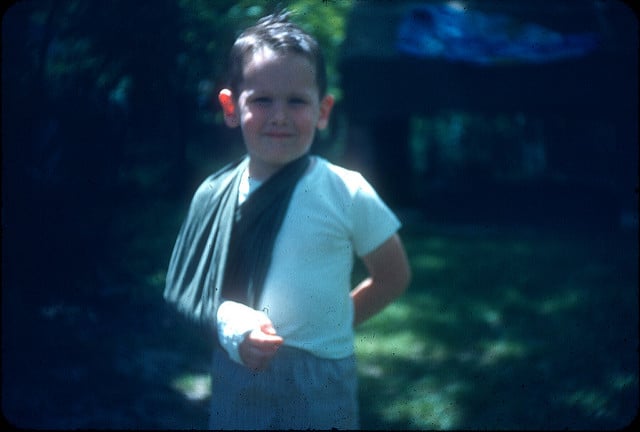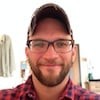On July 16, 1991, I slipped on some wet grass during a water balloon fight. It was the day before my ninth birthday, a quarter-century ago.
As my feet rose and my shoulders dropped, my left arm twisted behind my back. I came down with a sickening crunch. It was the first time I swore in front of my parents.
“Holy s*&% – I broke my arm!”
After a moment’s pause, they decided not to chastise me and instead rushed me to the hospital.
My radius and ulna – both bones in my forearm – were snapped clean through. The part of my arm below the break jutted out from my body in a cartoonish sort of way – it looked like I had two elbows, my arm in the shape of a ‘Z.’ As my dad drove wildly down Webster Avenue, each bump caused shooting pain through my arm, and I wondered through a veil of tears whether some doctor would need to cut it off to save my life.
The pain became more bearable while waiting in the ER. I squeezed the broken bones together; the pressure was relieving. As my mind cleared, I had another troubling thought. The rest of my summer was ruined. I’d have a cast. I wouldn’t be able to swim, play soccer in the local rec league, or cross the monkey bars at Green Isle Park. Would I be able to ride a bike? Pump on a swing? Build a sandcastle? My entire existence was in flux – without my arms in tact, how could I be me?
Hours later, I woke up in a daze, the earliest moments of my birthday. I was safe in a hospital bed, two-armed, a hard, white cast protecting me from shoulder to knuckles.
* * *
Years later, another broken bone. I was playing racquetball, chasing a shot to the front of the court when my heel slipped out. My foot went right into the wall. My left big toe, cleaved from top to bottom. Like the banana on a banana split.
I needed to wear a boot for eight weeks, and I would be on crutches for at least a month. I worked on a college campus, and spent my days zig-zagging back and forth on old-world cobblestones. My occasionally high-heeled colleagues would oft complain that the stones were treacherous terrain; on crutches, I understood what they meant.
I tripped along. My armpits were constantly chafed, red and raw from sweat and rubbing. It was summer in Omaha, hot and humid. I couldn’t drive my car – a stick shift – because the boot impeded my clutching capacity. I couldn’t continue training for the half-marathon my friend and I were planning to run. All was lost. I was a two-footed person by nature. What would I do with only one?
* * *
I have been thrown into the unknown many times. A privileged unknown that most don’t get to experience – different continents, Lakota reservations, the streets of Chicago and the people experiencing homelessness who live there. In all these places, I’ve never been my fullest, most comfortable self, because these places highlight my limitations, ones I can’t easily overcome – lack of language, lack of physical comfort and health, lack of access to the collective memories of historical trauma, lack of true knowledge of the other as a result of different skin, education, economic status. I can only surrender to these limitations. They are unavoidable.
That summer 25 years ago wasn’t so bad after all. Sure, I had to shower with a bag over my arm, but I figured out how to manage the life of a 9-year-old with a cast. I biked, dug, threw, chased, swung, and even water-ballooned through the rest of my break. I couldn’t do it all, but I could do enough. I grew closer to my parents who took special care of me, their small broken boy. My little sister and I did more together, often in the quiet of our house at morning, gentle sunlight breaking through the mini-blinds. My older brother defended me and protected me when neighborhood kids got too rough. I felt alive and free. And, when the cast came off, I had a great story to tell my classmates.
My toe also slowly healed. People offered to move meetings from the far edges of campus to my little office. My friend was spending time away for the summer and offered me her car, an automatic. I lifted weights instead of running with my friend. All was well, with a touch of patience and acceptance of the limitation that befell me. I wasn’t alone. I was still me.
And I learned something. In the face of feeling less than whole, in the face of limitations, I resign my own need to maintain control. Instead, that which I need most comes from somewhere outside myself, and I surrender to it. I choose to carry on without control, trusting that plunging into the unknown isn’t a solitary adventure, and that I won’t be lost. Those things and the people I need to carry on usually find me.
–//–
The cover photo from Flickr user Bruce Szalwinski, can be found here.


